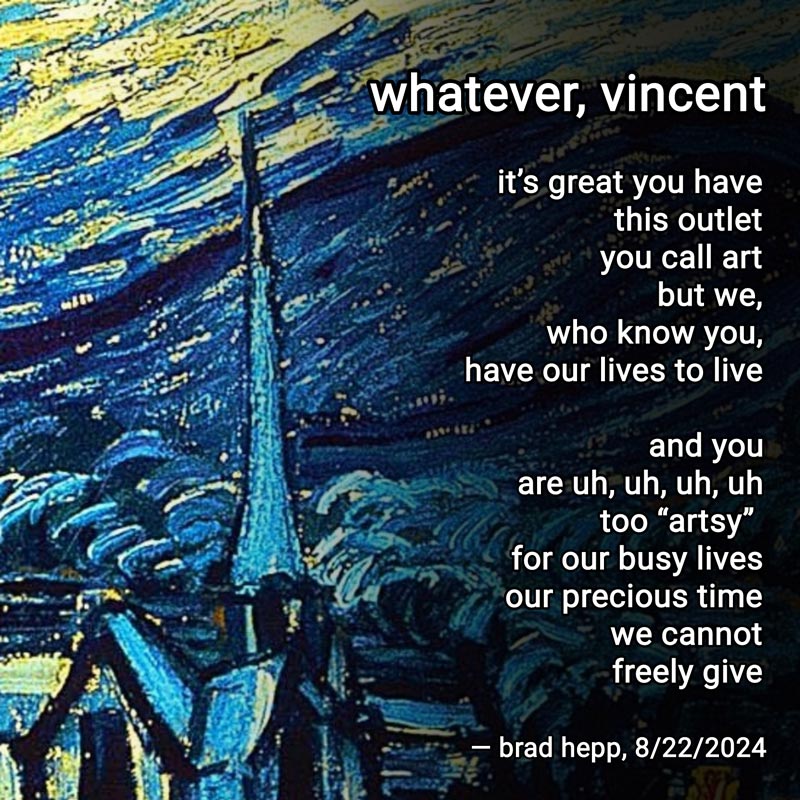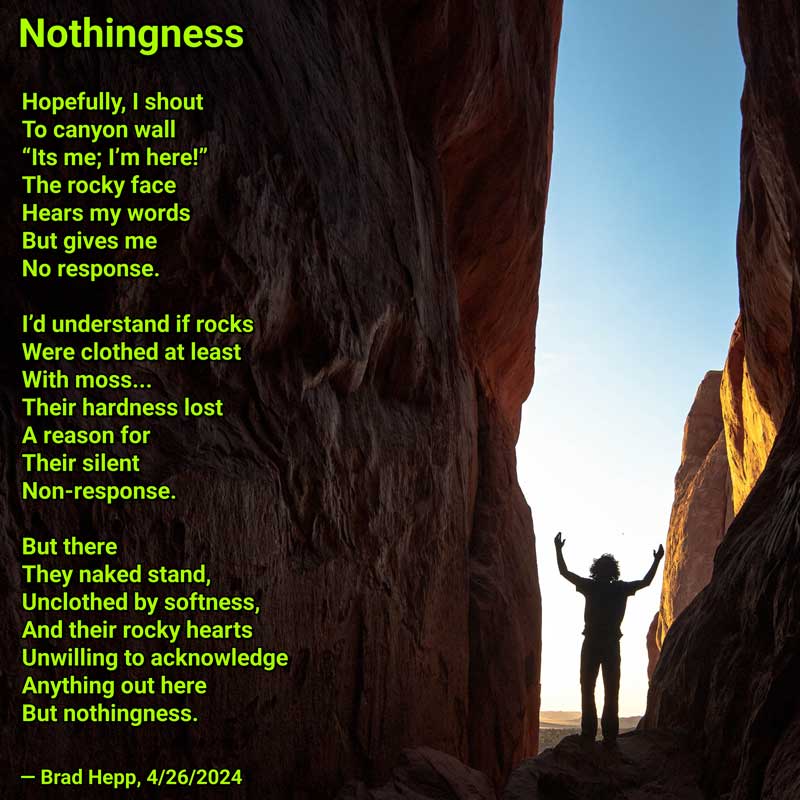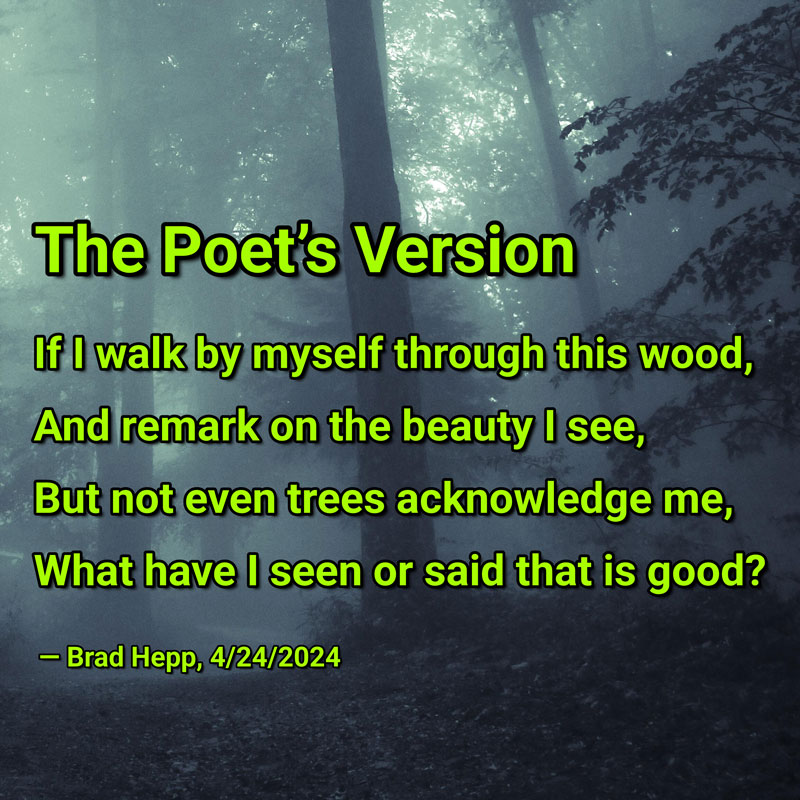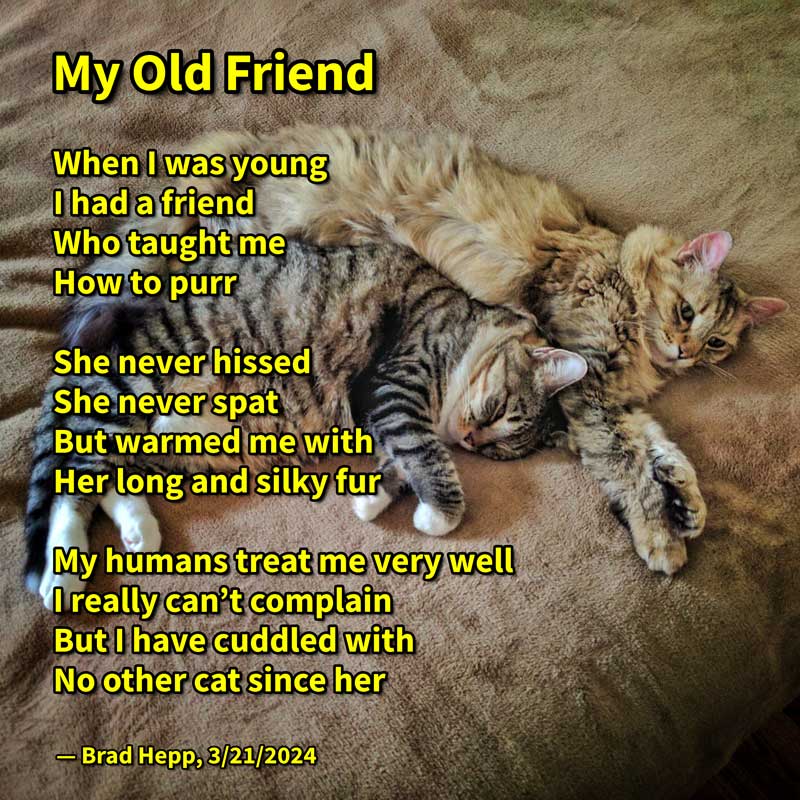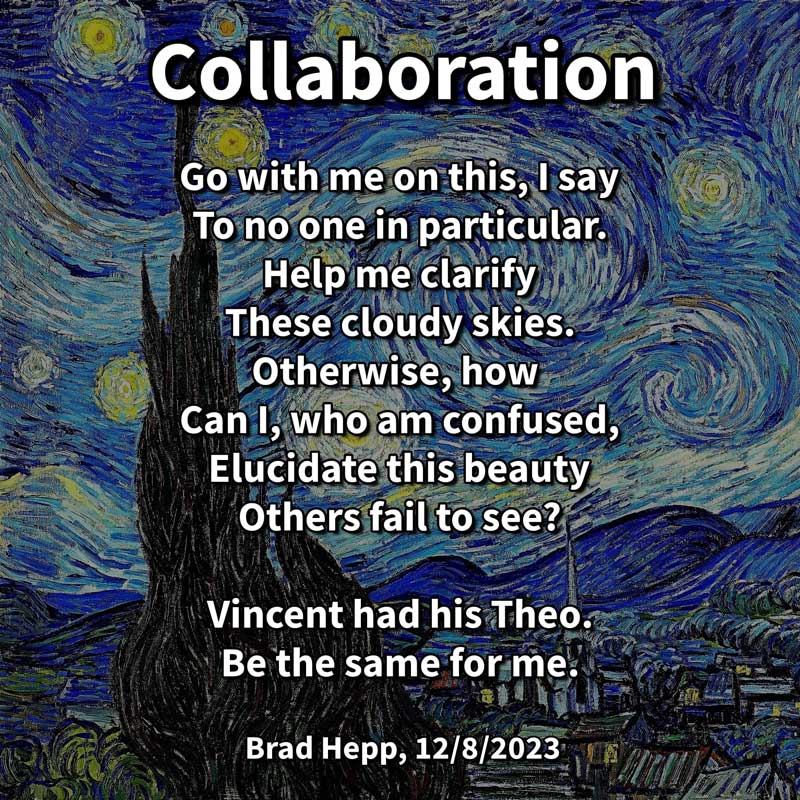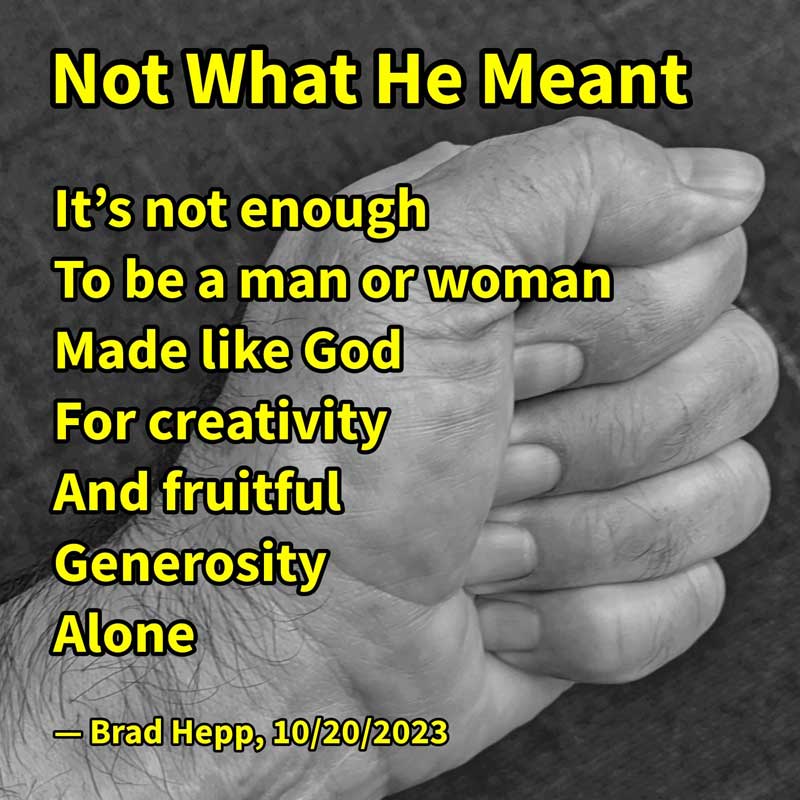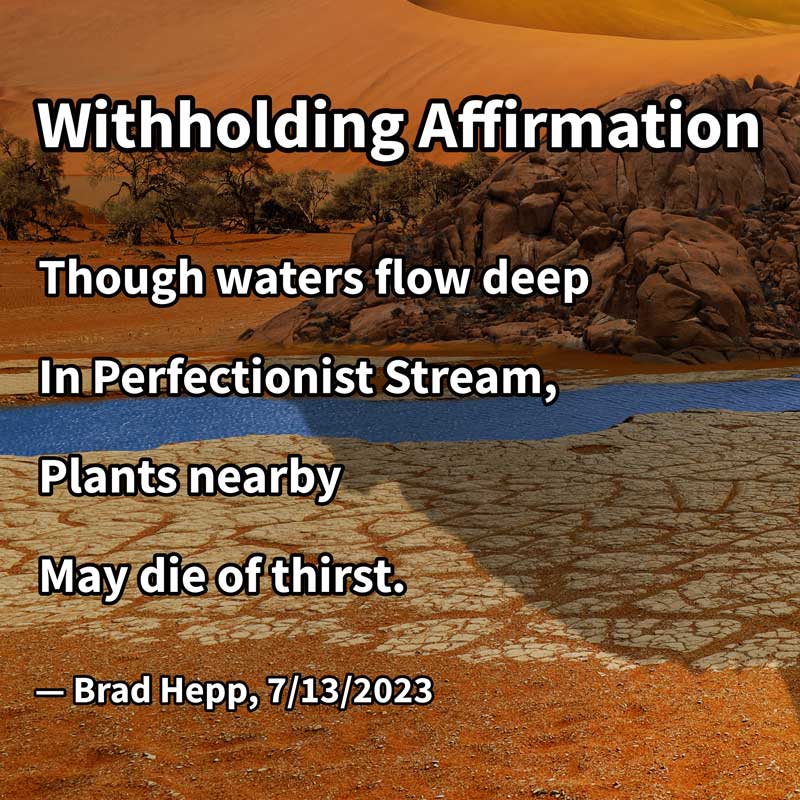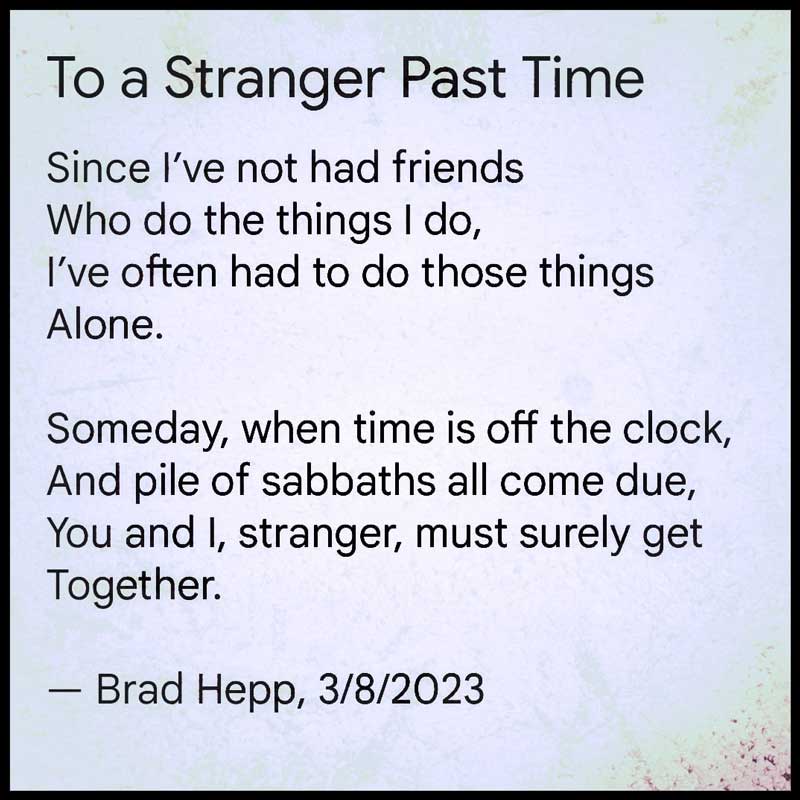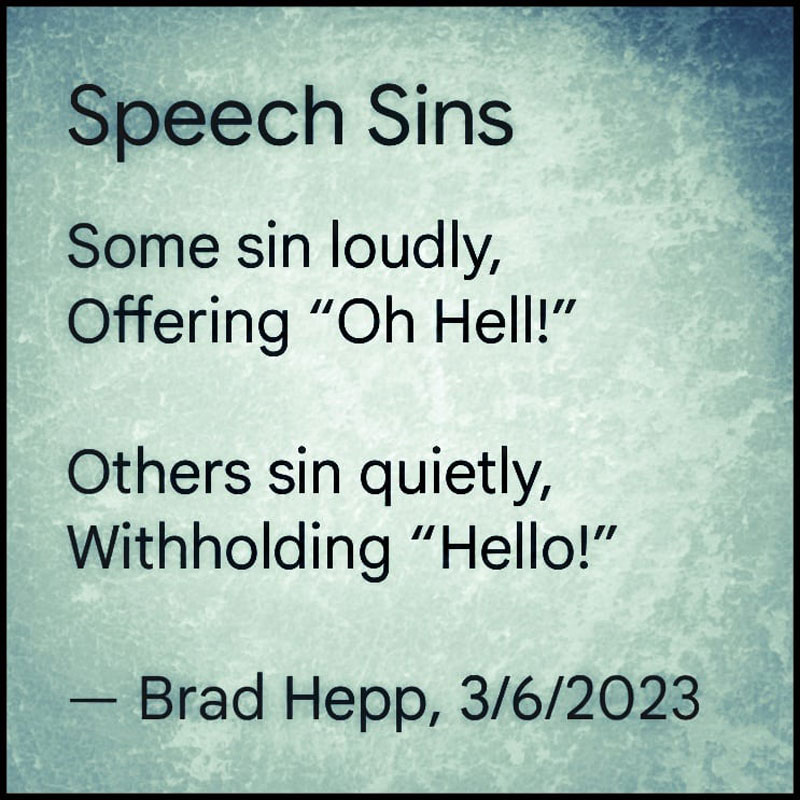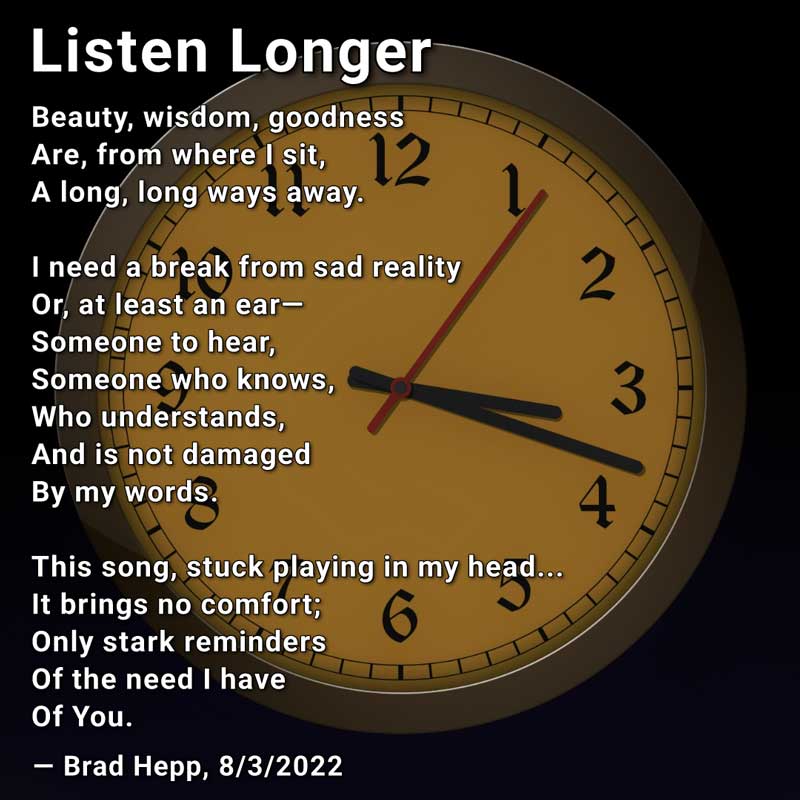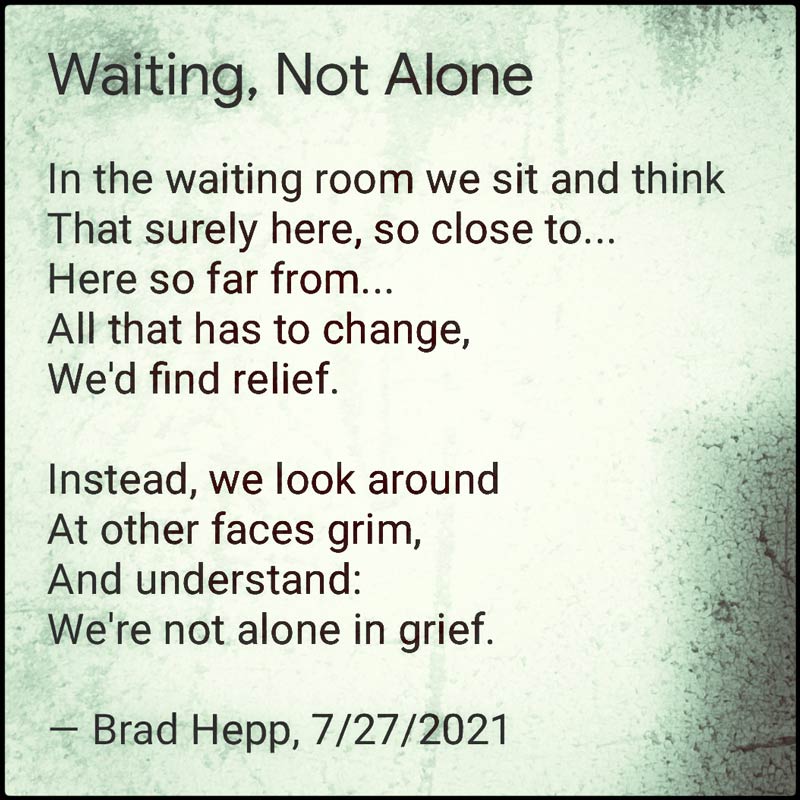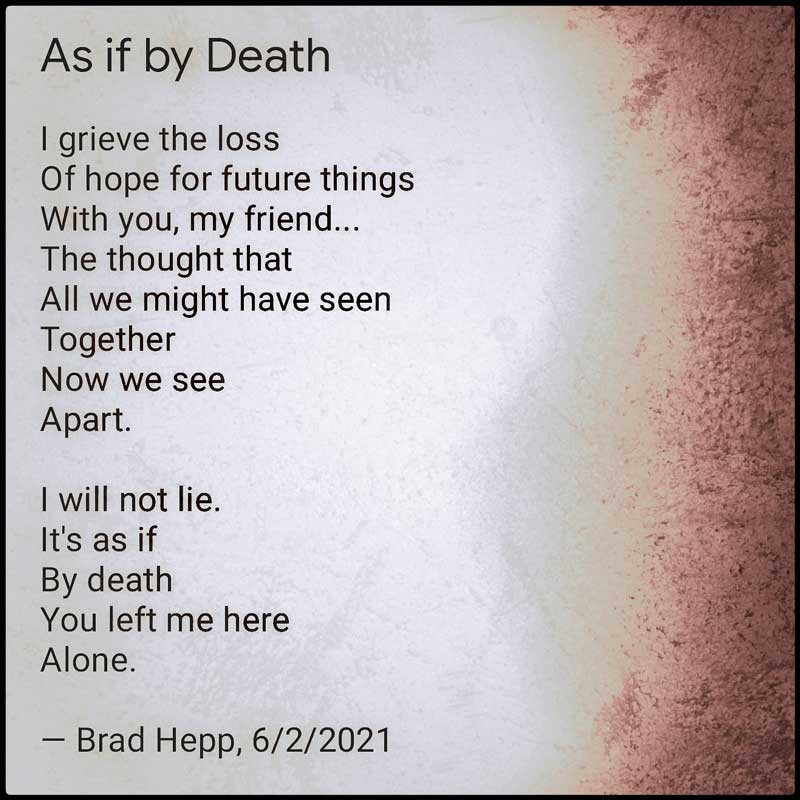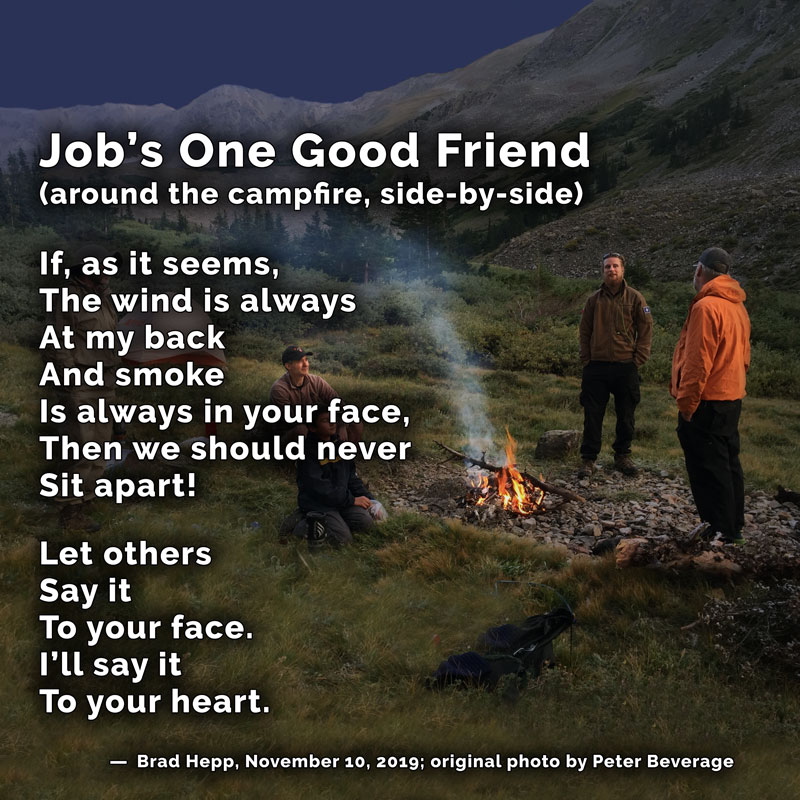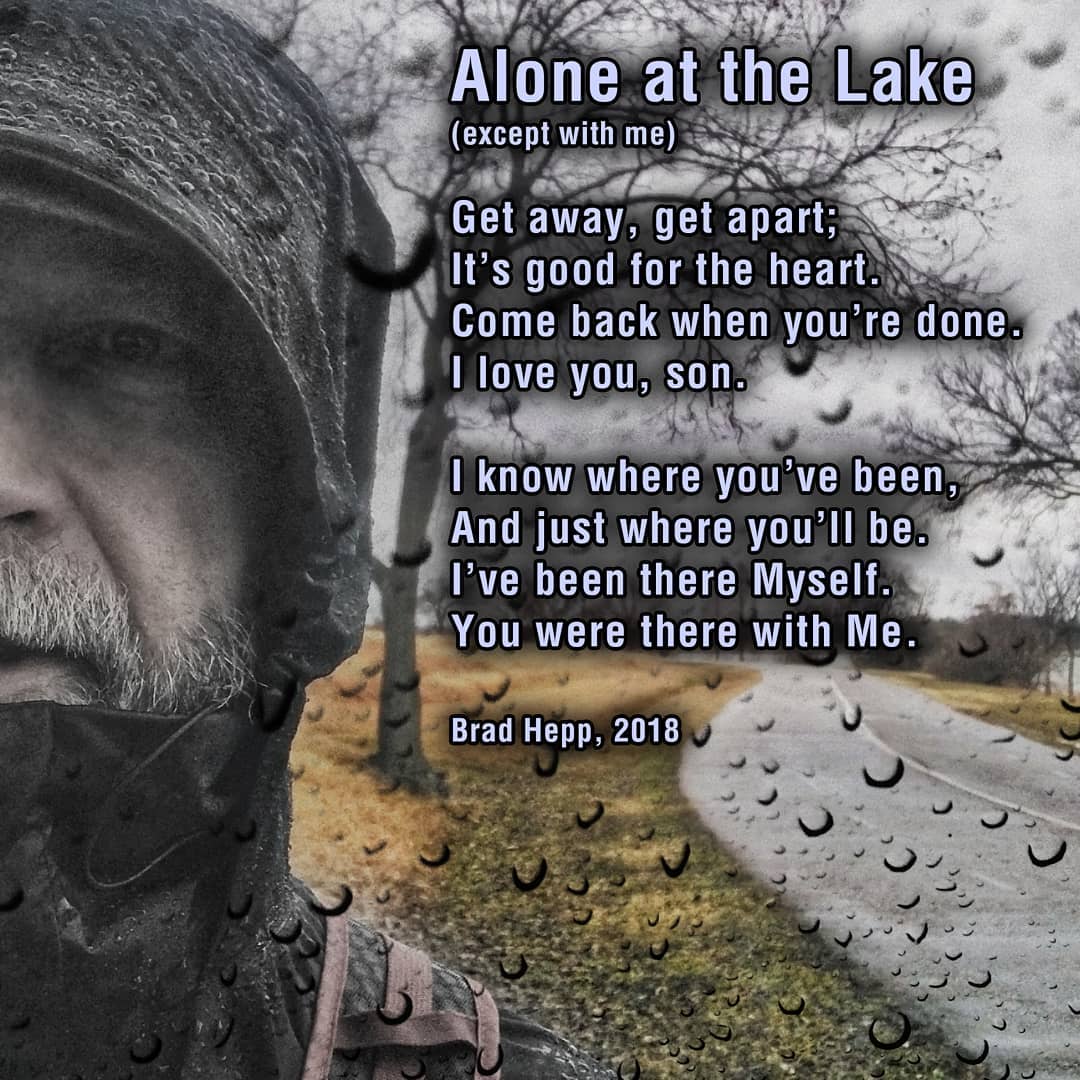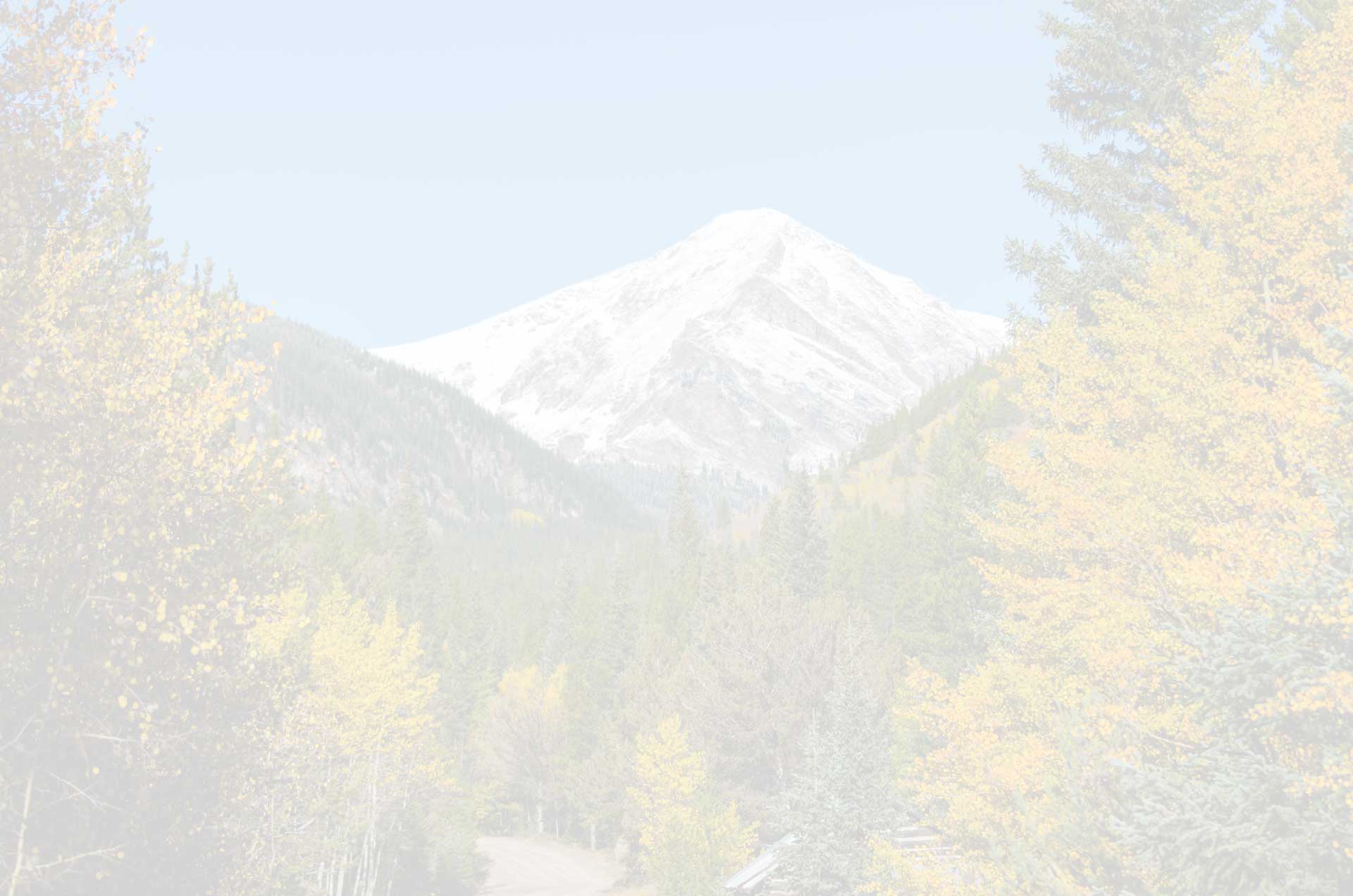(if you are viewing this via email, the website has a recording of this poem and commentary; click the title above)
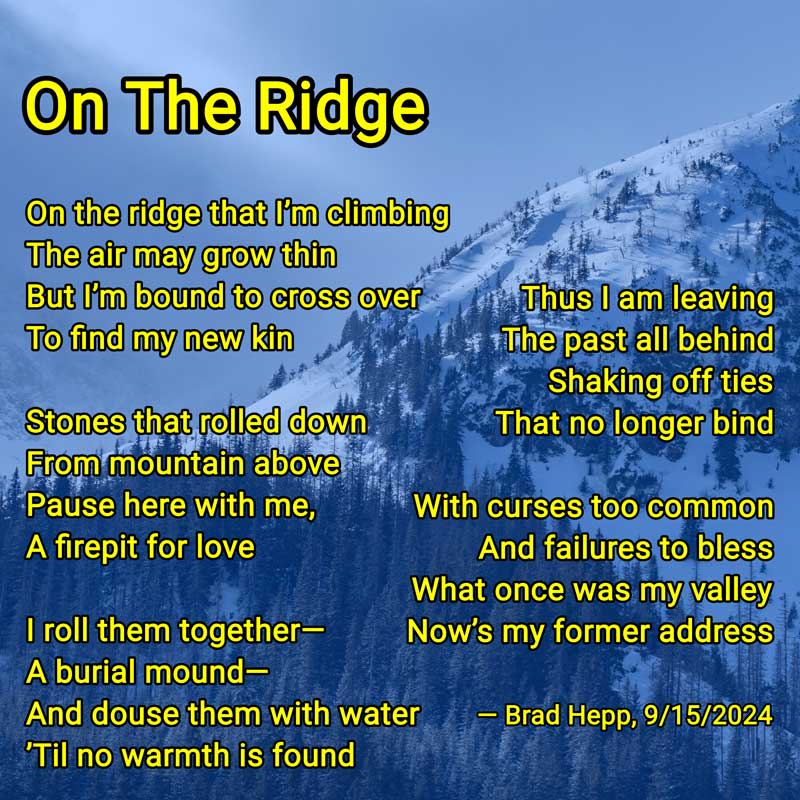
Commentary
Isolation and alienation have probably affected my outlook on life far more than I consciously understand. Consider the following from my youth:
- My first ten years, I was a gringo living in Mexico; I connected with the handful of other Anglo missionary kids far more than with the surrounding culture
- When we moved to a little East Texas town, I didn’t connect with that culture either; my different life experience, religious and academic orientations were off-putting to others and a barrier to fitting in
- In the advanced English course in my first semester of college, there were only three of us guys in a classroom of young ladies; that may sound wonderful for the guys, but it continued my theme of not fitting in (to this day, I find few men who appreciate poetry; even fewer who write poetry)
In the decades since, I got along fairly comfortably in white evangelical culture… until my late 50s. Beginning in 2016, and then rapidly accelerating in 2020, I began to distance myself from that culture. Now, I once again feel the isolation and alienation of my youth.
Here’s how that came about…. At the very time I began to recognize selfishness and racism in my own heart, a large majority of white evangelicals began to embrace and trumpet these sins.* When terrible events of 2020 and 2021 afforded opportunities to inspect our hearts and to repent and reform, too many doubled down instead on their love of power and privilege. Their hard hearts led them to hate good men and to love evil men. (Here’s a poignant poem I wrote at that time: “Lord’s Day Vision.”)
Am I blameless in all this? NO! I played a small part in promoting the drive for power and privilege until I saw what I had been doing. Even now, I keep having to bury my former affections, to douse the flame of former loves.
Does this poem make more sense to you now if you read it again with that background? I’d love to know! Comment below (click the poem title if you’re seeing this on email; there’s a comment form on the blog).
A related poem, especially with regard to God’s mercy in reforming us is “To A Misguided Cedar.“
__________
*I say “began to embrace and trumpet….” A better word may be “revealed.”
(background image cropped and tinted from a photograph by Peter Balog on Pixabay)
“Change” Poems:
Previous: Let’s Be Honest Astronauts
Next: Recall The Future
